Toxic levels of lead have been found in farm eggs from west Wales amid a developing scandal over unaddressed metal mine pollution.
Ceredigion has become one of the worst affected areas in the UK for metal mine pollution and home to “very severely contaminated” floodplains.
The county has over 400 abandoned mines, 196 of which are lead, and has been ranked the second most polluted county in Wales after Montgomeryshire, with 280km of polluted river channels.
Because of this Ceredigion is also home to some of the most polluted rivers due to legacy metal mining in the UK - Ystwyth, Rheidol and Clarach.
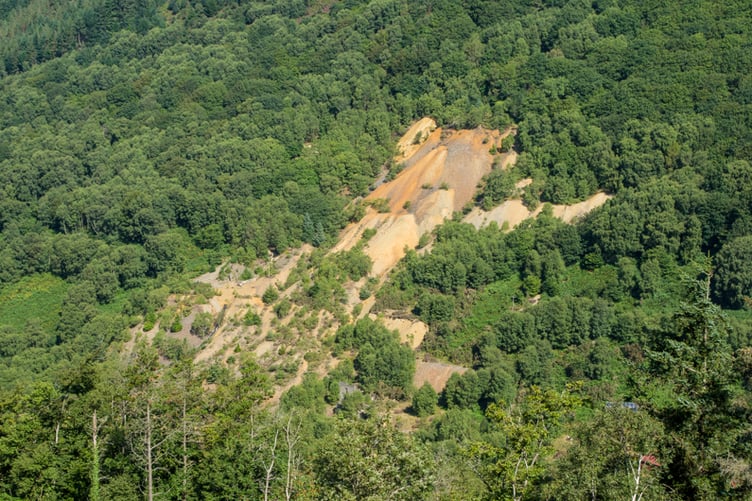
In March, a Financial Times investigation found up to 500 tons of metals leak from 129 mines across Wales yearly, causing unknown damage to the environment and public health.
This has raised a massive question mark over what unknown consequences this pollution continues to cause for residents, as well as whose job it is to do anything about it.
Chair of the Welsh Affairs Committee Stephen Crabb wrote to Welsh Government calling for action: “The extent of metal mine pollution in Wales has been known for many years, yet little concrete action has been taken and the system as a whole has failed to deliver progress. “Unless urgent action is taken, the issue of metal mine pollution in Wales has the potential to become an environmental and public health scandal.”

Metals including lead, zinc and cadmium leak from the 1,300 mines across Wales and from the contaminated river channels and floodplains extending tens of kilometres downstream. Lead stunts children’s IQ and brain development and can affect fertility, growth, mood, cardiovascular health and nervous system development.
A 2023 study found dangerous lead levels in eggs from chickens raised on lead-contaminated soil downstream from abandoned mines in West Wales.
If a young child ate one or two of these eggs daily it would be enough to stunt their cognitive development.
These eggs from the two unnamed farms had previously been sold and eaten locally.
Three of the farms’ chickens suffered from ‘acute lead poisoning’ and ‘excessive lead exposure’.
West Wales is a hot spot for metal mining that peaked in the 19th and early 20th century.
After they rapidly shut down across the 1900s no clean-up was legally required by mining companies until 1999.
In 2002 a Metal Mining Strategy for Wales was published following intense flooding in 2000, which caused significant contamination of river channels in England and Wales.
It wasn’t until 2020 that a remediation programme for metal mine pollution in Wales began, run by Natural Resources Wales (NRW) and the Coal Authority (CA).
However the lack of research and testing means levels of lead sitting in mine-contaminated floodplains in Ceredigion are still poorly documented.
Last week a Welsh Affairs Committee sat for an evidence session to understand the extent of metal mine pollution in Wales.
Ceredigion resident Professor Mark Macklin spoke at the panel on 8 May.
Macklin last year authored a global study which found 557,000 people in the UK were living on a floodplain contaminated from historic lead mining, accounting for over six per cent of the Welsh population.
He said: “In the UK, all the recent focus has been on microplastics and sewage but metal contamination from historical mining dwarfs both from an ecosystem and probably human health perspective.”
The shocking annual 500-ton statistic is just the beginning, however, as that figure only accounts for the 129 mines identified as causing high pollution levels- the 1,300 metal mines sitting in Wales means the pollution is likely to be even higher.
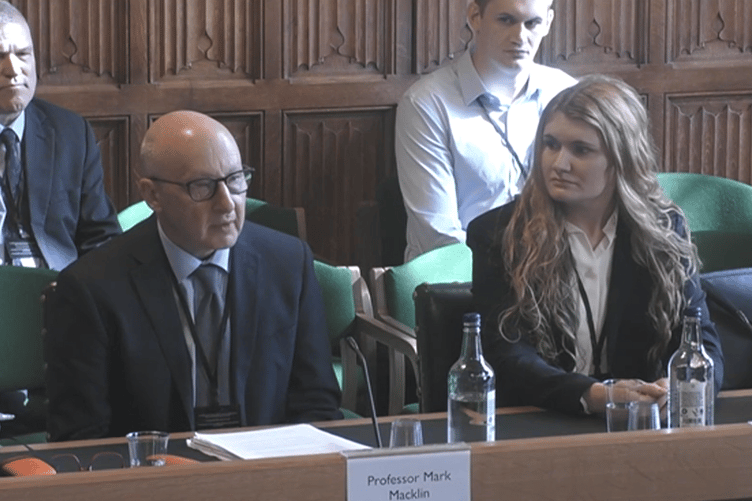
The NRW and CA remediation project addresses the pollution outflow ‘at source’, working to stop surface run-off of metals from these mines and diverting waterways around the mines.
However, the many hundreds-year-old mines have been leaking these toxic metals into waterways and soil for as long as they’ve been open.
The ‘extensive’ unregulated metal mining of the 19th century saw waste from that mining tipped directly into waterways, contaminants entering the water, channel beds and floodplains.
This ‘legacy’ contamination into floodplains across the UK covers 1,600km squared, similar to the size of Greater London.
However this contamination is being remobilised by riverbank and bed erosion more frequently by more regular flooding due to climate change.
Professor Macklin said this issue of historic contamination sitting in the soil beneath housing, gardens, allotments, smallholdings, farms and livestock could be “a more important problem than the mines” themselves, as seen in the startling 2023 egg study: “These contaminants have remained there ever since - they don’t biodegrade.”
The NRW and CA remediation work focuses on water quality, whereas local authorities are responsible for identifying contaminated land.
Though counties like Powys have a Contaminated Land Inspection Strategy, these strategies require funding which Welsh Government withdrew several years ago.

During the Welsh Affairs Committee session, politicians were “alarmed” by the shocking lack of responsibility taken by regulators to address this glaring and unseen issue.
Ruth Jones MP for Newport West said in the session: “We’ve heard that soil [contamination] is one of the biggest issues- if there is lead in the soil and [the regulators] aren’t picking it up and local authorities don’t know to pick it up- that’s a massive hole that things are falling through.” Committee Chair Crabb wrote after the session that “members of the committee were deeply concerned by what we heard” whilst Ceredigion MP Ben Lake said relevant bodies should “convene without delay to identify action necessary to mitigate any risk to public health... there is not a moment to lose.”
Only one remediation project was completed since the 2002 Metal Mines Strategy was published, at Ceredigion’s Frongoch mine.
Crabb quizzed NRW members about labelling Frongoch a “success”, as a 2016 study found 16 tons of metal were still being released from Frongoch each year, compared to 21 tons before the work was done. Meanwhile, there is no remedial work being done for historic contamination of river channels and, more importantly, floodplains as explained by Prof Macklin: “This is a two-part problem- NRW and CA are working on the water quality and mine element, however, what hasn’t been considered is the impact of mining on metal levels river channel and floodplain sediments and soils downstream.
“We must turn off the tap at the mines themselves, but 90 per cent of heavy metals are sediment-associated- there’s a focus on water, but the vast pool of contamination is in the sediment.
“We know where mine sites are but don’t know the extent of the problem of the diffused historic contamination.”
Whilst Dr Sartorius, author of the 2023 West Wales egg study, pointed to the World Health Organisation ruling that no level of lead was acceptable in the human body: “We don’t know how far away these mines may be having an effect on health and how big these zones of concern could be.
“People consider mines a historical interest or a site for recreation.
“Dog walkers and cyclists aren’t aware of the toxicity of the abandoned mines they’re walking on and local authorities don’t know that it’s something to warn people about.
“People are not informed- they only figure out there are issues when animals start dying.”
Ceredigion livestock died from lead poisoning after floods in 2012 contaminated their feed.
Advice now states to not graze livestock after flooding or feed them from food cut after a flood.
But the academics are understandably frustrated- they developed technology to map this problem back in 2003.
Macklin said: “I’ve been working on this for 40 years.
“Many of the things we’re talking about today were identified in the 2000s, but it was not acted on.
“The feeling 20 years ago was that the floods were a one-off- John Prescott described it as a ‘wake-up call’.
“We’ve since seen the floods weren’t a one-off.
“There should be greater linkages from regulators- we need joined-up working.”
Dave Johnston, NRW Senior Specialist Advisor for abandoned metal mines, admitted in the session that “there is no testing regime” for downstream metal contamination whilst the focus on water quality was given to them from the Welsh Government.
The consensus from NRW and CA was that they are doing what they could with the funding and remit they are given.
Christian Wilcox, Head of Strategic Projects at NRW, said: “There is no silver bullet- this needs investment, education and delivery.
“Funding drives us to work in siloes, there are definitely areas [the statutory bodies] could work closer on.
“I’d love us to get to a place where rather than discussing who is responsible, we look at what we are trying to achieve, who is best placed to deliver it, where and when.”
MP Lake condemned the “lack of regulatory oversight” for this problem that has been “known for years by government departments” but not addressed.
Lake added: "The Committee hearing left me in no doubt that there needs to be immediate action by Government to identify the areas of land contaminated by pollution from historic metal mining, and for those areas to be targeted for closer testing so that the level of contamination is understood.”
Prof Macklin and colleagues proposed a state-of-the-art process-based mapping and modelling tool to show authorities the ‘zones of concern’ and guide farmers better.
He said: “It’s not possible to remediate the soil pollution, it’s on too large a scale, but we can manage it.
“The good news is we have this technology and can pioneer it in places like Ceredigion.
“This will show where it would and wouldn’t be appropriate to grow produce.
“We’re not trying to scare people, we’re trying to give people information.
“We know how to deal with it, we just have to join things up.”
Ceredigion Council “supports the call for properly funded resources and research”, stating it “has not received any notifications from health agencies of lead poisoning from Ceredigion soil”.
It however ”intends to test for metal contamination in eggs this financial year.”
But the solutions don’t just sit with Macklin.
Deborah Mercer owns a sheep small-holding in Ceredigion’s Cellan, conveniently on higher ground than the many mines which lie around her.
She studies non-textile uses for wool at the Centre for Alternative Technology, including looking into wool to absorb heavy metals like arsenic, mercury, copper and zinc to address the water contamination from agricultural run-off.
She said: “We are in a very privileged position to have such an abundance of drinkable water in the global North, we take it for granted that it will always be the case.
“Wool is currently an undervalued product, yet there is an abundance in Wales.
“If alternative wool uses like heavy metal filtration are promoted and supported it could help increase farm diversification, creating a more economically stable and resilient sheep industry in Wales.”
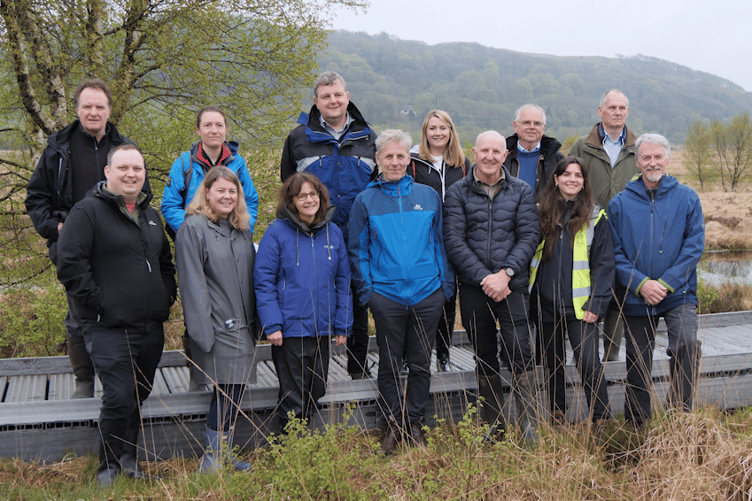
Llanbrynmair in Powys is home to the Dylife Metal Mine, which caused the Afon Twymyn to fail its European Water Framework test for healthy water because of its zinc, lead and cadmium levels.
Dylife is one of the five with remediation projects active with NRW and CA, and one of 25 in progress.
Powys County Councillor Gary Mitchell said the engagement from NRW to landowners and communities has been “the best it can be”.
He added: “The plans for the Dylife mines restoration are extensive, expensive and must be sympathetic to the landscape.
“I have no doubt, on seeing figures of the pollution, it will make a significant difference to what is really an un-seen issue.”
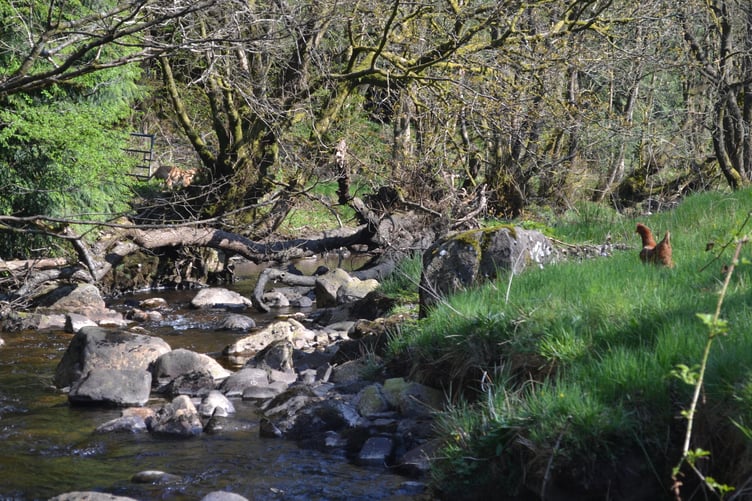
Meanwhile, the West Wales River Trust is encouraging residents to act by training locals to monitor and protect their waterways.
Joe Wilkins, Ceredigion Community Engagement Officer for West Wales River Trust said: “We know many communities are worried about the pollution in their local rivers.
“We want communities to feel confident in being eyes, ears, and voices for their rivers.”
To get involved contact [email protected]
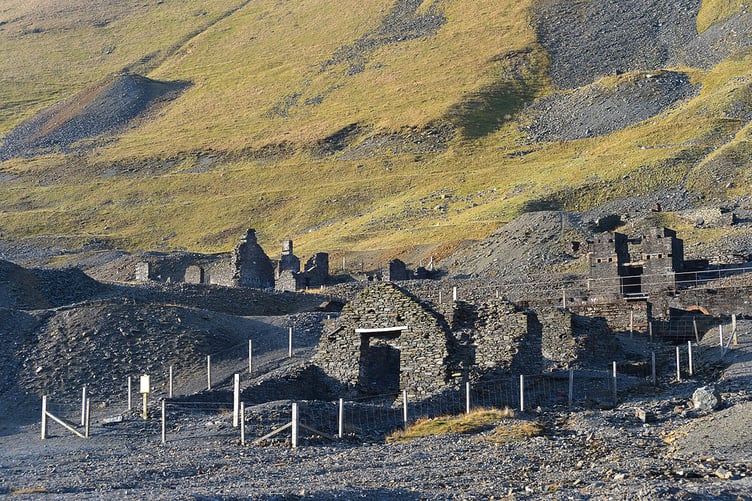
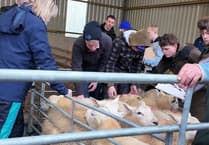
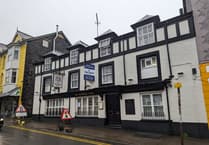

.png?width=209&height=140&crop=209:145,smart&quality=75)
Comments
This article has no comments yet. Be the first to leave a comment.